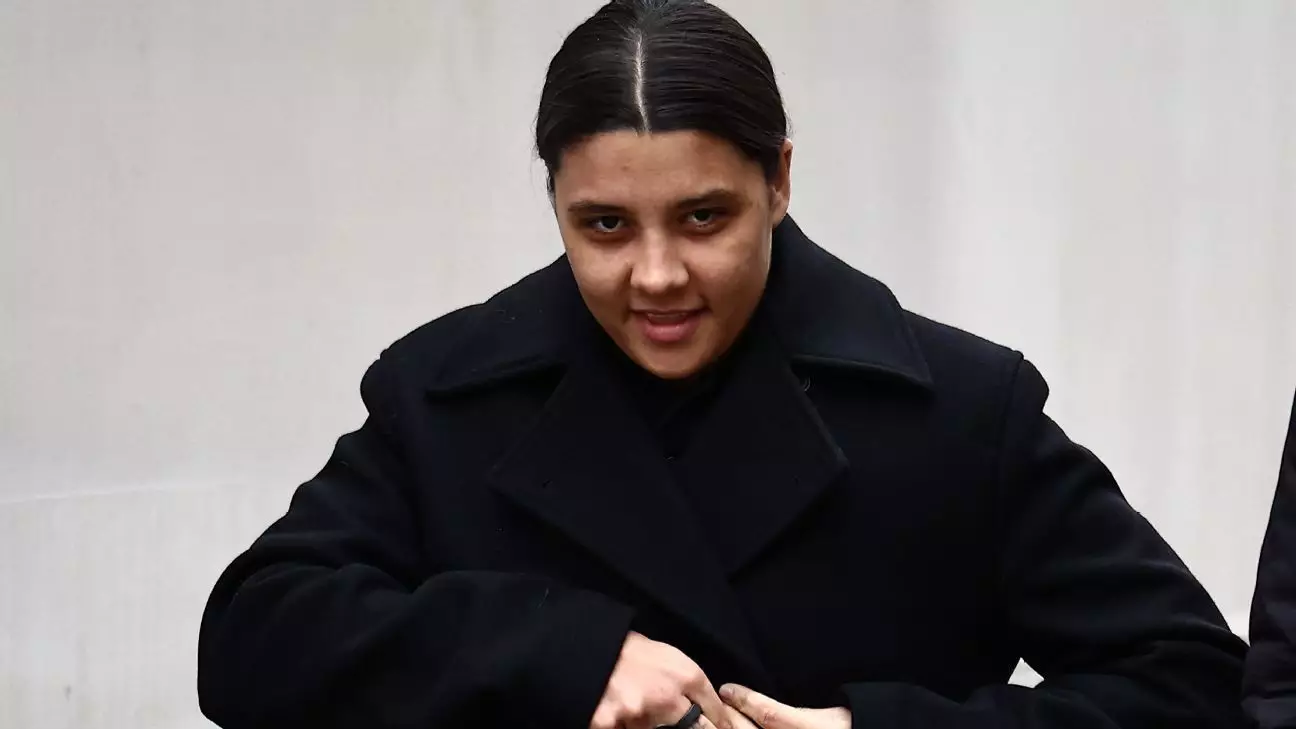The intersection of celebrity culture and the legal system often reveals complex narratives that transcends mere allegations. The ongoing trial involving Australian football star Sam Kerr serves as a quintessential example of how fame can influence a legal proceeding, particularly when race and personal conduct are at the center of the controversy. Kerr stands accused of racially aggravated harassment against Metropolitan police officer Stephen Lovell, which has sparked a robust dialogue about accountability, privilege, and the implications of public scrutiny on both sides.
The incident in question took place in the early hours of January 30, 2023, following a night out for Kerr and her partner, Kristie Mewis. Their evening ended with a chaotic confrontation involving a taxi driver, who alleged that the players failed to pay clean-up costs after becoming ill in the cab, resulting in property damage. Discontent brewed as the driver reportedly locked them inside the vehicle after a series of erratic driving maneuvers, raising questions about both parties’ behavior that night. This chaotic backdrop serves as the stage for the accusations that followed and has inevitably blurred the lines of accountability.
What unfolded afterward at the Twickenham Police Station is at the crux of the trial. Kerr is accused of making derogatory comments towards Officer Lovell, calling him “stupid and white.” While Kerr has acknowledged making these remarks, she contests that they do not rise to the level of criminal harassment. The refusal of the Crown Prosecution Service (CPS) to initially pursue charges has begun a debate about whether the response was appropriate given the circumstances.
Lovell’s testimony reveals a dichotomy between the perceived weight of his emotional response and the legal ramifications that followed. He described feeling “belittled and upset” by Kerr’s comments, a sentiment that suggests that public servants may find themselves in a precarious situation when their roles intersect with high-profile individuals. The timing of Lovell’s statement to the CPS raises questions—did his feelings arise from a genuine sense of offense, or was there an element of opportunism as the narrative developed?
His initial omission of the emotional impact of Kerr’s comments and the subsequent addition in a second statement hints at a potential evolution of his stance, possibly influenced by the media narrative surrounding the case. Such inconsistencies can undermine the credibility of allegations, forcing the jury and public to question the motivation behind law enforcement’s actions.
Kerr’s status as a prominent athlete introduces another layer to the case. The trial comes amidst heightened global attention on women’s sports, particularly following the 2023 Women’s World Cup. The defense attorney skillfully navigated the relationship between Kerr’s celebrity and Lovell’s motivations, suggesting that his desire to pursue the case was fueled in part by her public profile. This intertwining of fame and legal accountability forces us to reckon with broader societal discourses about race, gender, and power dynamics.
In a world increasingly shaped by public opinion and media narratives, a celebrity’s missteps can become fodder for sensational headlines, obscuring the legal complexities of individual cases. The “victimization” of public figures can foster a culture of silence around misconduct while simultaneously amplifying accountability that might disproportionately affect marginalized communities.
As the trial progresses, it underscores a critical examination of whether justice can remain impartial in the face of public perception and celebrity culture. The courtroom must weigh not only legal merit but also the impact statements can have on the lives they touch. Kerr’s acknowledgment of her offensive comments does not simplify the legal charge; instead, it complicates our understanding of intent versus impact in public discourse.
As the case unfolds, both public figures and law enforcement must contend with the consequences of their interactions. The trial of Sam Kerr marks a pivotal moment in understanding the complexities of harassment laws, the implications of racial commentary, and the responsibilities that come with fame in a hyper-public world. The outcome will not only determine Kerr’s fate but will also reverberate throughout the sports community, influencing how misconduct is perceived and addressed in the age of celebrity.


Leave a Reply